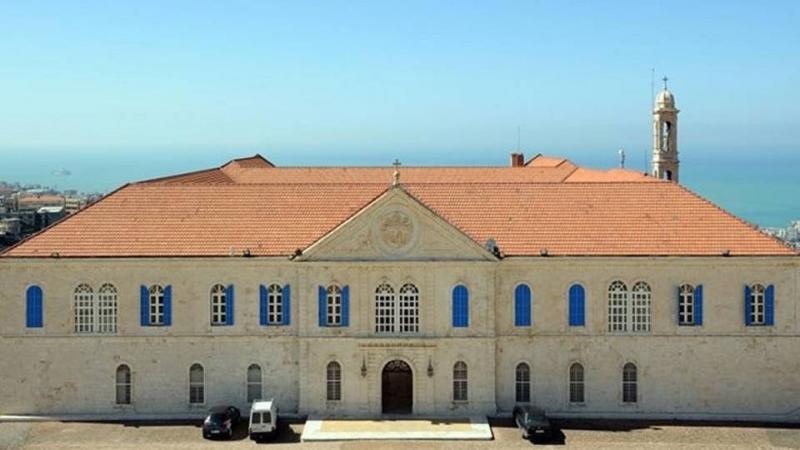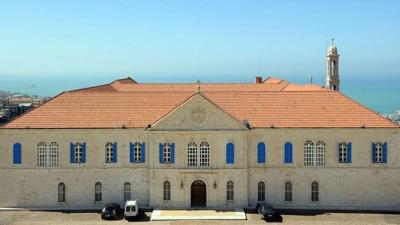As the debate continues among Lebanese parties regarding the quorum needed for the second round of presidential elections, Maronite Patriarch Beshara Rai's stance has created an embarrassment for those defending the two-thirds majority requirement, primarily Christian parties represented by the "Lebanese Forces" and the "Free Patriotic Movement." This stance also aligns with that of the "Hezbollah" team and its allies, headed by Speaker Nabih Berri, who has the final word in managing election sessions.
During the penultimate session for electing a president, there was a debate between Berri and opposition MPs, notably Sami Gemayel, the head of the "Lebanese Forces," and MPs Melhem Khalaf and Firas Hamdan, regarding the legal clause Berri relies on to assert that the required quorum for the second round is 86 deputies. They criticized Berri for closing the first round, advocating for keeping the session open and using a simple majority rather than two-thirds.
On Sunday in Rome, Rai made a significant statement that could affect how parties approach this issue. He said, "Regardless of the tradition that requires a two-thirds quorum of the members of the Parliament for the election of the President, we must not forget the legal principle that states: (there is no custom opposed to the constitution)." He explained: “The constitution in its article 49 states that the President is elected by a two-thirds majority in the first round and by an absolute majority (half plus one) in subsequent rounds.” He questioned, “Why close the first round after each ballot and obstruct the quorum in the following round contrary to article 55 of the internal regulations of the parliament? The parliamentary council cannot continue manipulating and deliberately delaying the election of a (President of the State who ensures the continuity of the entity and the preservation of the system). What is meant by this? Abolishing the separation of powers? Erasing the active role of Christians in general and Maronites in particular?”
The "Lebanese Forces" rejected the notion that this put them in an embarrassing position, considering that it does not conflict with their call for open sessions until a President is elected. MP Elias Hankash from the "Lebanese Forces" stated, “We have always discussed this issue based on the constitution, and this is what we discussed in parliament with the Speaker, who did not provide us with a constitutional response on any article that he relies on to move to the second round with a two-thirds quorum, which has turned into a pretext for obstructing sessions.”
Regarding the importance of Rai's position, Hankash said, “They cannot be more royalist than the king; neither the Christian parties that boast about the two-thirds quorum nor the Speaker of Parliament. The Patriarch discussed this topic, as he is the primary stakeholder and is concerned about the position of the President, in addition, of course, to all Lebanese.” Therefore, Hankash considers that “the other Christian parties represented in parliament, specifically (the Forces) and (the Movement), have been embarrassed by the Bkerke position that reinforces our stance and gives it more momentum, undermining the other positions that were issued in the election session.”
At the same time, Hankash affirms that the "Lebanese Forces'" demand for the two-thirds quorum does not mean what Berri spoke about in the penultimate session—that a President could be elected with thirty votes. He clarified, “When we call for keeping the second round open and adopting a half plus one quorum, it does not mean electing a President with thirty votes, but rather with a majority of votes as well.”
Conversely, "The Forces" sources refuse to consider the Bkerke position as conflicting with their position, although MP George Adwan clearly declared support for the two-thirds quorum in the penultimate session. "The Forces" emphasize responding within the general framework, viewing Rai's goal as pressuring parliamentary blocs and the Speaker. They stated to Al Sharq Al-Awsat, “The Patriarch's position does not contradict our position, which calls for keeping the electoral sessions open. We consider that any quorum issue is dropped, and MPs should attend the sessions and remain in the council until a President is elected at a time when some are using the constitution as a pretext for obstruction.”
For their part, sources within Berri's bloc refuse to respond or comment on the Patriarch's position, urging everyone to wait for the session next Thursday to see how the Speaker addresses Rai's proposal. Berri's sources emphasize that “the solution remains in the agreement to elect a President of the Republic," merely stating to Al Sharq Al-Awsat: "The tradition that the Patriarch called for breaking aligns with the constitution, since 1926, before and after the Taif Agreement, where presidential elections began with a two-thirds quorum.” They ask, “If the constitution needs a two-thirds quorum for amendments, how can a president be elected with less than two-thirds?”




